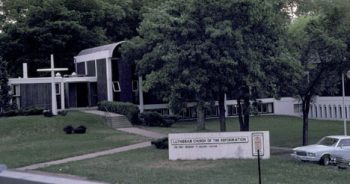By Bob Hulteen
What does resurrection look like today? How does life arise from death?
The members of Lutheran Church of the Reformation, a St. Louis Park congregation that closed in 2015 and donated the property to the synod, have left a legacy of resurrection. A portion of the $1.2 million proceeds from the sale of their building and land in 2017 will foster imagination, innovation, and collaboration amongst other ELCA congregations in the Minneapolis Area Synod through a new grant-making program.
“Each congregation began as an act of imagination – people trusting a vision that a community of faith was needed in a particular neighborhood,” said Bishop Ann Svennungsen. “When a congregation closes, it would seem very faithful that part of its legacy would be to support new congregations and imaginative ministry initiatives in today’s context.”
The Minneapolis Area Synod Council devised a framework for the distribution of the proceeds from the sale of donated church properties. A 10% tithe will be sent to the synod’s companion synod, the Lutheran Church of Christ in Nigeria (see “From Minneapolis to Numan”), and an equal amount will be distributed to groups that are committed to the charisms, or primary mission concerns, of Reformation. In addition, the plan allows for 25% of the funds to be awarded to innovative projects of congregations in the synod, according to the Rev. Matt Flom, a member of the Resurrection Fund Advisory Committee (RFAC), the group appointed by the Synod Council in 2017 to develop procedures around the distribution of these funds.
“The intention of the grant is to offer a spirit of resurrection, transformation, or re-imagining of congregational ministry.”
“The intention of the grant is to offer a spirit of resurrection, transformation, or re-imagining of congregational ministry,” explained Jane Kretzmann, another member of RFAC. “A congregation interested in applying would look at its context for ministry, asking what new program might benefit from a small amount of yeast to be more fruitful in their ministry.”
According to the “Ministry Imagination Grant Guidelines and Procedures,” each congregation within the synod is eligible to “develop a proposal, either independently, or in partnership that includes two or more synod congregations, or through a partnership of congregations and other ministries or service entities.” But, the focus is congregations, according to Flom, pastor of Long Lake Lutheran Church in Isanti, Minnesota. “The committee wants to encourage imagination for ministry in congregations, projects that will make Christ known in their communities.”
“Sometimes the only thing stopping innovation is money, or, more accurately, lack of money,” explained Svennungsen. “These grants can inspire imagination and encourage collaboration, which often creates even greater imagination.” The Ministry Imagination Grants will range from $2,000 to $25,000.
“OUR SYNOD VISION THAT ‘all experience gracious invitation, life-giving Christian community, and healthy neighborhoods’ depends on new abilities to innovate and take risks in this changing world,” Svennungsen offered. “The ministry imagination grants provide seed money for just such innovation.”
“The process is wide open. The only constraint imagined by the committee was that the funds would not be used for the maintenance of existing programs,” Flom added. “The funds can be used for needed training for new ministry; equipment or material needs for new ministries; or for improving projects that have been part of a congregation’s existing ministry for a while. Consistency with the synod’s mission statement really became the only evaluative constraint.”
“We are trying not to put any boundaries on what people should focus on,” added Kretzmann, a retired philanthropic professional and member at Holy Trinity Lutheran in Minneapolis. “We want to encourage the potential for partnerships and new and innovative projects.”
“Sometimes the only thing stopping innovation is money, or, more accurately, lack of money.”
The process is intended to be equitable, thoughtful, and clearly supportive of innovation and collaboration, according to Svennungsen. She explained that RFAC will facilitate the process and review the applications, then pass along recommendations to the Synod Council, which will ultimately make the final approvals.
“Think boldly,” challenged Flom. “The goal is give the money away for ministry in the local situation.”
The Ministry Imagination Grant Guidelines and Procedures are available on the synod’s website. The initial deadline is June 15.

